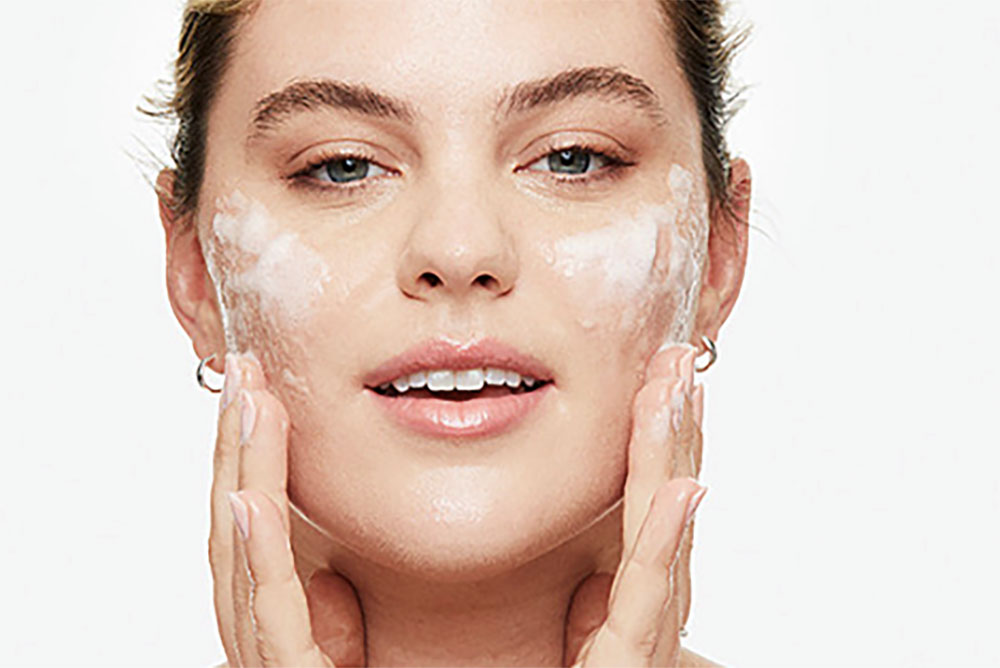
Ablutions per the Olay website.
By Valerie Monroe
If you’re interested in feeling happier about your appearance—especially as you age—you might like reading what she has to say about it. For more of her philosophical and practical advice, subscribe for free to How Not to F*ck Up Your Face at valeriemonroe.substack.com.
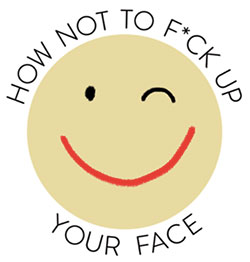
Can’t get enough Valerie Monroe? There’s more at https://valeriemonroe.substack.com.
IT WAS WITH some trepidation a couple of winters ago (iffy back) that I joined the hordes of happy kids sledding down the steep, snow-packed hill in my neighborhood. I hadn’t been on a sled in 25 years but I remembered that sled-happiness and I wanted it again. The problem: No sled to call my own. Too shy to ask a kid if I could borrow one for a ride, I hung around the excitement like the dateless girl (I often was) at the dance. Then I remembered I did have a metal hamper, with—aha!—a lid. I went home for it and hurried back.
I guess I have mild body dysmorphia: When I tried to sit on the lid, I found it was too small for my butt. (Please note I did not say my butt was too big for the lid.) But I was too excited to care.
I positioned myself at the hill’s peak. “Need a shove?” someone behind me asked. “I do!” I said, and I was off. Off the lid, that is—but not before enjoying around 20 feet of bliss. I was delighted with myself, the kids, the world.
Thinking about it afterward, it seemed important to remember that doing something inadvisable—like flying down a hill on a hamper lid—can keep your outlook fresh. I’m often looking to drop back into what Buddhists call “beginner’s mind,” a childlike feeling of seeing or doing something for the first time. When that happens, it’s as if previous experience or context has burned away, and what you get is the raw nature of a thing. It feels like unencumbered attentiveness, a deep intimacy with the moment. It’s hard to describe but, to paraphrase what a judge once said about pornography, You know it when you see it. (I’m far more certain of knowing beginner’s mind when I see it than I am about pornography. But anyway.) Experiencing a fresh start makes me think of feeling cleansed, which brings me to . . .
“Ask Val” answers your urgent questions.
Yes, you, in the balcony, holding the—what’s that buzzing thing, a cleansing brush?
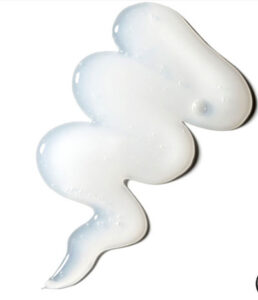 Q: I’ve basically lived indoors for more than two years. When I do go out, I’m usually still wearing a mask. Do I need to wash my face twice a day . . . or even once a day?
Q: I’ve basically lived indoors for more than two years. When I do go out, I’m usually still wearing a mask. Do I need to wash my face twice a day . . . or even once a day?
A: Here’s a little riddle I just thought of:
What’s the difference between washing your face and cleansing it?
Around $45.
That cleansing brush reminds me that as a new beauty editor I once wrote unadoringly about a cleansing brush, one of the first of its kind; I think I said I threw it under my bathroom sink where devices went to die—which unsurprisingly elicited an enraged email from the PR friends who sent it. I just couldn’t see the point of it. Then I watched, stupefied, as the cleansing brush phenomenon, with intense marketing fire behind it, took off like a rocket. Did we all brush our way to a better complexion? I think you can guess the answer.
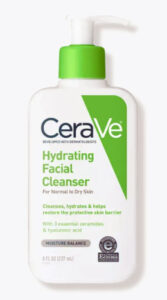
Cleansing doesn’t have to cost a bazillion dollars. . .
As usual, a seemingly simple question—this time about face-washing—turns out to be more complicated than I thought. There are those (by which I mean beauty companies) who assert a difference between a face wash and a facial cleanser, the former being better for oily skin and the latter better for sensitive skin. While it’s true that different formulas can have different effects, what the product is called seems largely a matter of marketing. I discovered recently that some of these same people would also have us believe it’s necessary to wash your face in the morning to remove any toxins that have accumulated perniciously while you enjoyed your beauty sleep. (Sometimes when I read beauty copy, I wonder whether it’s actually a credulity test: How far will it go before I’m forced to say, Oh, c’mon?)
Washes and cleansers have the same purpose—to remove makeup and sweat and whatever else you believe might be accruing on your skin whenever you’re not washing or cleansing it. Doesn’t “cleansing” sound fancy, though? Like something you should be doing for your skin rather than just washing it? That’s no accident.
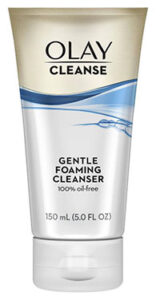
. . . and can be effective yet gentle.
“Cleansing” is rooted in late Old English clænsunge, which means “a purifying castigation; chastity, purity.” According to a story by Austin Perlmutter, MD, in Psychology Today, theologian John Wesley is said to have uttered the now-famous line, “Cleanliness is next to godliness,” during a 1778 sermon, after which washing oneself took on significance beyond basic hygiene and became a route to social acceptance. (And an excuse for wildly racist messaging.) The soap industry started producing large quantities of body and face washes, exploiting the connection between God and cleanliness, and using religious language to sell their products. You’ll remember, of course, that the ritual of purifying the body (baptism, the mikvah, bathing in the Ganges) symbolizes moral purification in many religions.
Though the connection is less blatant today, there’s still resonance with the clean-skin-is-better-skin idea that fuels a multibillion-dollar facial-cleanser industry. Why else would there be a double-cleansing trend, in which you wash first with an oil-based cleanser and follow that with a foaming gel, cream, or lotion cleanser? Or a triple-cleansing trend, using an oil-based cleanser, then a cream one, then a foaming one? If you chose to, you—a skincare penitent—could spend all day washing your face.
Interestingly, these two ablution trends originated in Korea. According to a fascinating (to me, at least) study: “[Because of] East Asians’ emphasis on the face as a representation of public self-image, facial purification may have particularly potent moral effects. Data show that face-cleaning (but not hands-cleaning) reduces guilt and regret most effectively against a salient East Asian cultural background. It frees East Asians from guilt-driven prosocial behavior. In the wake of their immorality, they find a face-cleaning product especially appealing and spontaneously choose to wipe their face clean.”
Lady MacBeth who?
Here are the two most salient things you should know about the stuff you use to clean your face. I asked dermatologist Laurel Geraghty if there were benefits to using a cleanser rather than a face wash. “Medically and scientifically, there’s no difference between washing and cleansing,” she says. And, says dermatologist Mary Lupo, “Whatever you use to clean your face shouldn’t irritate your skin.” That’s notable because washing your face with a product (rather than water only) can make it easier to strip your skin of lipids (or fats) necessary for a healthy skin barrier. To prevent this, some cleansers contain ingredients like emollients or humectants to counteract their potential to dry out or irritate. (If this sounds circular to you, it is.) Cleansers promising “treatment” of any kind (except for salicylic acid for acne) are bogus, as the product isn’t on your skin long enough to have an effect, so don’t waste your money on them.
Most dermatologists agree it’s wise to wash your face before you hit the hay, especially if you wear makeup. A wash and a rinse with lukewarm water and an inexpensive cleanser (Lupo likes this one; I use this one) will clean your face well enough. Why not use plain body soap? Traditional bar soaps lack moisturizing ingredients and can be drying; they may also contain irritating fragrances or dyes. Some people like to wash occasionally with honey or rose water. (I tried the manuka honey wash. It was sweet. And messy.) Some days I skip washing my face, to no visible effect, and Lupo says there’s no harm in that. Though she is a proponent of lavishing yourself with care and points out that there are benefits, such as lower levels of the stress hormone cortisol, as a result of massaging your face. (There’s even a tutorial about mindful face-washing on the Headspace app.)
Recently, there was another snowstorm in my town, and the shrieking kids were back on that hill. I’ve since given away the metal hamper—and though a kind neighbor bought me one of those flying saucer sleds, I was reluctant to use it (iffier back). So I stood on the hill, let my heart open to the joyful noise, and raised my unwashed face to the falling snow.

So glad you enjoyed the post, Nancy G!
I could never understand the logic behind $60 cleansers/washes. The product goes right down the drain. Thanks for an historic walk through facial cleanliness. I chuckled here and there, too.